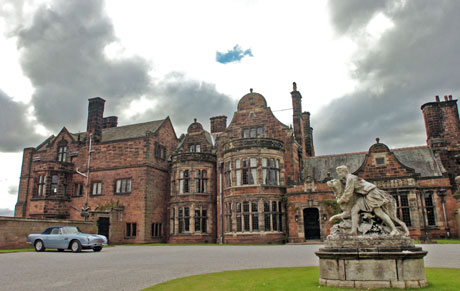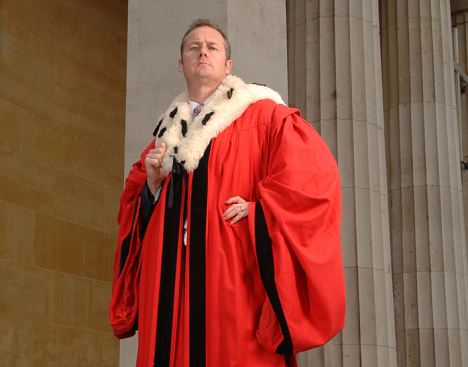Do you fancy becoming a Lord? These can be purchased through the Manorial Society of Great Britain. However, what is the history of lords and manors?
Lordships of the Manor are among the oldest titles in England and pre-date the Norman Conquest, begun by William I at the Battle of Hastings in 1066.
Historians are not agreed on how the word Manor originated. It has been suggested that it is an import, manoir or perhaps even older, from the Latin, manerium. Nor are historians sure whether it was a purely Saxon concept, its origins lying in the need for self-defence down the east coast against invasions by Germanic tribes and later Vikings.
They are agreed, however, that the Manor was the pivot of the Feudal System, defined by the 11th century “by certain ecclesiastics who propounded the theory that human society was divided into three orders, the oratores, the bellatores, and the laboratores: those who protected it with their prayers and their swords, and those who tilled the earth to support the other two classes” (Dr A P M Wright, Senior Assistant Editor, VCH writing in the Bulletin of the Manorial Society of Great Britain, 1981).
By the reign of Edward the Confessor (1042-66), the Lord of the Manor was the most important person in village affairs, whether it be collecting taxes for the King or dispensing high justice, the power to inflict death in his courts.
Historians are also agreed that the Normans institutionalised the Manorial System in Domesday Book, compiled for William the Conqueror in 1086 and listing 13,418 Manors and their owners. It was an inventory of the wealth of the new kingdom and, as such, is still a Government document, housed at the Public Record Office where it is known as Public Record No 1.
The conquerors also introduced the word feudum, from feuum (the Latin form of the Old English feoh, cattle, money, possessions in general); either a landholder’s holding, or lands held under the terms of a specific grant.
It took the 18th century, however, to come up with the expression “Feudal System” which is made to have uniform operation in the High Middle Ages. Few things could be further from the truth. The Feudal System was versatile and diverse, which is why its form of landholding survived in many parts of England and Wales until the 1920s.
In return for his protection and the land he gave them, the people on the Manor, from slaves to freemen, owed their Lord certain services, ranging from money rents to working so many days a week on the Lord’s home farm or demesne, without pay (week-work).
Throughout the Middle Ages, the English nobility was a caste whose power was based on the ownership of land through the Manor. Their peerages, unlike those on the continent, were purely honorific and they lost them if they lost their landed status.
in time the powers of the Lord were diminished. No reigning monarch could permit any other than appointed officials to have power of life and death. From the reign of Henry II, the royal itinerant justices fought a long battle with the Lord of the Manor over his powers of criminal jurisdiction. The kings eventually won, but when Elizabeth I instituted justices of the peace, it was the Lord of the Manor to whom she looked to fill this post as they had the status and local knowledge necessary to win respect.
Manorial Lords are by no means missing from the lists of justices, deputy lieutenants, or even lords lieutenant today.
In 1922, the Government of the day enacted the most thorough legislation touching property in England and Wales. In respect of the Lord of the Manor, the Law of Property Act abolished copyhold tenure, taking away his right to be Lord of the soil save that which he owned directly. He was compensated
and the copyholds were converted on 1 January 1926 into freehold, or 999-year leasehold.
The Act went on to confirm many of the historic rights long enjoyed by the Lord of the Manor: the right to market and fair, mineral excavation (subject to the enfranchisement of the copyhold, the subsoil still belongs to the Lord of the Manor), fishing rights, sporting rights, manorial waste (principally the verges of the road and those areas in rural Manors which do not appear to belong to anyone), common land rights (subject to the Common Land Registration Act 1965), even the village green.
Some Lords today charge a manorial wayleave and are paid by British Telecom yearly for every telegraph pole planted in the roadside verges. Others operate markets which require planning consent. Still others, in conjunction with the freeholder, employ mineral excavation companies to take out gravel, or sand if the subsoil contains a commercially exploitable deposit.
The operable historic rights associated with their Manor must be legally established by each purchaser. Those relating to Manors in the past included:
- The right to hold market and fairs
- The right to common land and manorial waste
- The right to all the usual manorial incidents such as merchets, heriots, wardships, tolls, and escheats, pickage, stallage, turbary, and pannage
- The rights to mines and quarries within the Manor
- Fishing rights
- Rights of free warren, free chase, and free forest
- Timber rights
- Rights over rivers and foreshore.








